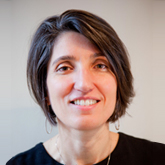AFCEN is an international association. Its members are companies from the nuclear or conventional energy sector (when operating in the nuclear sector), whose activities are related to the technical fields covered by AFCEN codes.
AFCEN organizes one General Meeting a year for its members, during which its general strategic directions and budget are approved.
A Board of Directors manages the association. The board defines and ensures compliance with the association’s strategic objectives and provisional budget once adopted by the General Meeting.
To achieve its work program, the Board is supported by an Executive Committee comprising designated members from the association. The Executive Committee is assisted by a General Secretariat, which is responsible for the general coordination of the association’s activities, a Training Committee, an Editorial Committee and Subcommittees, each of the Subcommittees covering a technical field associated with a specific code.
AFCEN does not have any regular employees. Its work is entrusted to experts who have been designated and made available by its members. The organization and operation of AFCEN’s different entities reflect this particular situation.
In some countries, such as China and the United Kingdom, AFCEN has set up local structures to help the Subcommittees more easily understand the codes, incorporate national issues into their work and capitalize user’s experience feedback.
These local structures usually comprise Users Groups, which users are not necessarily AFCEN members. Each Users Group is associated with a code.
Each Users Group is chaired by an AFCEN member as part of an agreement. In cases where a country has several Users Groups, a Steering Committee is created to coordinate their activities.
General Meeting and Board of Directors
AFCEN is managed by a Board of Directors, whose members are appointed according to its articles of association and which reports to members on its activities during the General Meeting.
 Laurent THIEFFRYAFCEN President
Laurent THIEFFRYAFCEN President Bruno MARCHALVice-president treasurer
Bruno MARCHALVice-president treasurer Didier HERVIEUGeneral Secretary
Didier HERVIEUGeneral Secretary Bruno MARQUISDeputy General Secretary
Bruno MARQUISDeputy General Secretary Lucien ALLAISCEA Administrator
Lucien ALLAISCEA Administrator Nicolas GILLETFRAMATOME Administrator
Nicolas GILLETFRAMATOME Administrator Myriam CLAYESEDF Administrator
Myriam CLAYESEDF Administrator Xavier MACHURON-MANDARDCEA Administrator
Xavier MACHURON-MANDARDCEA Administrator
General Secretariat
The General Secretariat oversees AFCEN's operation, proposes strategic directions to the Board of Directors and implements the actions chosen by the Board. General secretariat is appointed by the Board.
It organizes and manages Executive Committee meetings where decisions are made. General secretariat organizes edition and distribution of all AFCEN publications and supports activities deployed by the Editorial and Training Committees.
On an international level, the General Secretariat is supported by International Relations Coordinators and Local representatives.
 Didier HERVIEUGeneral Secretary
Didier HERVIEUGeneral Secretary Bruno MARQUISDeputy General Secretary
Bruno MARQUISDeputy General Secretary Racine Mamadou KANEIT Manager
Racine Mamadou KANEIT Manager Lovahasina RAZAFINTSEHENOCommunication & Public Relations
Lovahasina RAZAFINTSEHENOCommunication & Public Relations Laurie LESCALLIERSales administration
Laurie LESCALLIERSales administration Nadiège LUDIVIONQuality
Nadiège LUDIVIONQuality YUAN YeChina Coordinator
YUAN YeChina Coordinator Lucien ALLAISEurope Coordinator
Lucien ALLAISEurope Coordinator Bruno MARQUISPoland India Coordinator - Communication Manager
Bruno MARQUISPoland India Coordinator - Communication Manager Frédéric BeaudUK Coordinator
Frédéric BeaudUK Coordinator
General Secretariat provides to AFCEN's members and experts with a collaborative work tool called "AFCEN CORE".
This tool simplifies interaction between experts on a national and international level, while providing them with the data required for their work and enabling them to archive their work in accordance with the confidentiality rules associated with the protection of intellectual property.
Access to this tool by members and their designated representatives is subject to AFCEN membership and compliance with confidentiality rules.
For everyday communication with code users and more generally with the interested public, AFCEN offers a website www.afcen.com containing information on the codes and their environment, membership forms and the sale of its publications, as well as forms for submitting interpretation and modification requests to AFCEN.
For the routine management of AFCEN’s activities, the General Secretariat holds weekly conference calls that are open to the Committee Chairs and Deputy Chairs and the International Relations Coordinators.
Editorial Committee
The Editorial Committee Chair and his two deputies are appointed by the Board of Directors.
The Editorial Committee is overseen by a Chair and is attended by the Chairs from each Subcommittee. The Secretary-General and the Deputy Secretary-General, International stakeholders and the IT Manager are also invited. Technical Group leaders are invited to attend Editorial Committee meetings to present progress of transverse works.
The Editorial Committee is responsible for authoring and updating the codes published by AFCEN, as well as carrying out the associated technical studies. The committee defines AFCEN’s editorial program, monitors and guides the work of the Subcommittees and approves the code editions and modifications prior to publication.
The Editorial Committee oversees the quality of AFCEN’s publications. The quality of publications contributes to the safety and availability of nuclear facilities and takes account of the economic aspect of building and operating such facilities by leveraging feedback from international industry best practices.
The editorial program is aimed at responding to the needs of AFCEN’s members.
Standard practice is for members to express their needs by means of code Requests for Modification (RM) or Requests for Interpretation (RI). Such needs may also be voiced during general meetings or any events organized by AFCEN. The various international schemes set up by AFCEN are ultimately intended to ascertain potential requirements.
As such, the Editorial Committee guides the work of each Subcommittee and proposes how all crossfunctional tasks. The Editorial Committee is also the preferred means for circulating information to and from between the executive committee and the experts.
 Frédéric BEAUDChairman of the editorial committee
Frédéric BEAUDChairman of the editorial committee Guillaume ZAMMOUTChairman of the RCC-CW Subcommittee
Guillaume ZAMMOUTChairman of the RCC-CW Subcommittee Marie LEMAIREDeputy of the Editorial Committee in charge of ESPN
Marie LEMAIREDeputy of the Editorial Committee in charge of ESPN Benoit DUPUISChairman of the RCC-C Subcommittee
Benoit DUPUISChairman of the RCC-C Subcommittee Benedict-John WILLEYChairman of the RCC-E Subcommittee
Benedict-John WILLEYChairman of the RCC-E Subcommittee Manuela TRIAYChairwoman of the RCC-M Subcommittee
Manuela TRIAYChairwoman of the RCC-M Subcommittee Cécile PETESCHChairwoman of the RCC-MRx Subcommittee
Cécile PETESCHChairwoman of the RCC-MRx Subcommittee Mathieu DOLLChairman of the RSE-M subcommittee
Mathieu DOLLChairman of the RSE-M subcommittee Mickaël CESBRONChairman of the RCC-F Subcommittee
Mickaël CESBRONChairman of the RCC-F Subcommittee
Training Committee
The Training Committee ensures that certified training is available in each field for AFCEN code users.
Training programs bearing the AFCEN hallmark guarantee a high level of service quality and thereby allow users to gain a clear insight, knowledge, uptake and proficiency in the requirements and practices for using the codes published by AFCEN.
The Training Committee assesses the ability of prospective providers to implement AFCEN courses and approves the training aids that they consequently need to use.
It establishes partnership agreements with training organizations and manages all the aspects specified in those agreements.
To raise the profile of the range of certified training courses, the Training Committee publishes an AFCEN certified training catalog on the www.afcen.com website. The website also provides detailed information with interactive links on AFCEN’s certified training courses, which are delivered by partner training organizations.
The Training Committee makes a specific point of monitoring AFCEN’s certified courses over time and updating courses to reflect changes in the codes.
 Bruno MARQUISChairman of the training committee
Bruno MARQUISChairman of the training committee Didier HERVIEUDeputy
Didier HERVIEUDeputy Ludovic QUÉMARD
Ludovic QUÉMARD Isabelle MORGADO ELLEBOODE
Isabelle MORGADO ELLEBOODE Olivier RECEVEUR
Olivier RECEVEUR Thierry LEBARBE
Thierry LEBARBE Emilie SAMAIN
Emilie SAMAIN Yolaine HERRERA
Yolaine HERRERA Florent STEUER
Florent STEUER
AFCEN’s Subcommittee and Working Groups
The Subcommittees are responsible for carrying out AFCEN's technical activities, with each Subcommittee covering a field:
Seven Subcommittees are active:
- RCC-M : Design and construction rules for PWR mechanical equipment
- RCC-E : Design and construction rules for electrical equipment
- RCC-CW : Design and construction rules for PWR civil engineering works
- RCC-C : Design and construction rules for PWR fuel assemblies,
- RCC-F : Design and construction rules for PWR fire protection systems
- RSE-M : In-service inspection rules for mechanical components of PWR nuclear islands
- RCC-MRx : Design and construction rules for mechanical components in nuclear facilities subject to high-temperature structures and the ITER vacuum vessel
The Subcommittees are responsible for:
- working as part of the Editorial Committee and drafting the rules corresponding to the field covered by the Subcommittee, and continuously updating those rules to reflect feedback from industry best practices and changes to international legislation,
- supporting the Training Committee with certifying training courses and selecting providers to deliver such courses,
- supporting and interfacing with international Users Groups.
Each Subcommittee comprises:
- a Subcommittee Assembly
- a Subcommittee Board.
- Permanent working groups,
- Dedicated working groups.
The Subcommittee Board represents the Subcommittee’s decision-making and arbitration body, and features a Chair, a Vice-Chair and a restricted number of experts appointed by the Subcommittee Chair based on their skills. The Subcommittee Chair designates the working group leaders from the experts in the Subcommittee Board.
Working groups focus on one of the Subcommittee’s sub-fields and are responsible for:
- drafting and continually improving the parts of the code corresponding to the sub-fields,
- investigating and responding to Requests for Modification and Interpretation submitted by code users.
Dedicated working groups instruct during a limited period technical topics mandated by the Sub committee. They produce studies which may result in publications after validation by the Subcommittee to Modification Requests.
Texts approved by the Subcommittee Board are submitted to the Editorial Committee Chair and to General Secretary who validate the publication opportunity.
Figure below presents the different working groups within each Subcommittee.
Users Groups
Users Groups are local structures, at a country scale, that are responsible for coordinating local activities within the scope of the relevant Subcommittee.
Users Groups’ missions involve:
- pre-investigating Requests for Modification and Interpretation submitted by local AFCEN code users,
- informing users about the activities of AFCEN’s Subcommittees and any changes to the corresponding codes,
- sharing feedback from the country’s nuclear industry,
- facilitating adaptation of AFCEN codes to the local context (especially the country’s regulations and industry best practices),
- helping to provide training for the AFCEN code users in their country,
- assisting with identifying communication needs (seminars, conferences, etc.) and their implementation in the country,
- helping ensure consistency in the various multi-lingual versions of the codes.
For a dedicated country the Steering Committee is the local structures responsible for coordinating and prioritizing the activities of all Users Groups according to the country challenges. Steering Committees are governed by agreements with AFCEN. Steering Committees comprises one representative from AFCEN’s General Secretariat, the designated International Relations Coordinator and the Chairs of each Users Group in the country.

